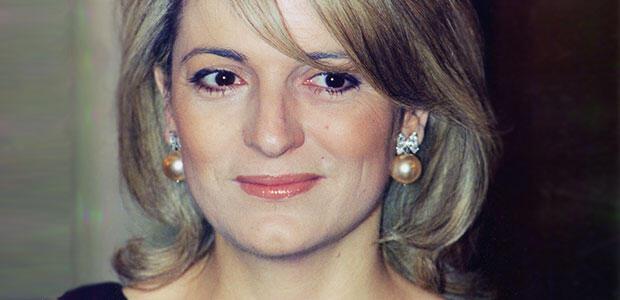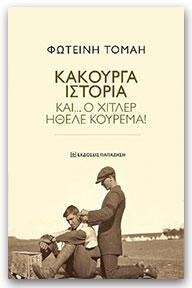By Evagelos Sotiropoulos* November 28, 2011
Thank you, Your Grace, for taking the time to discuss the issue of fasting. Let me begin by asking, for those who may not know, how did the practice of fasting begin?
I appreciate your interest in this important topic, especially as we find ourselves in the period of the Christmas fast.
We have to remember that one commandment given by God to Adam and Eve was about fasting:
And the Lord God commanded the man, saying, “You may freely eat of every tree of the garden; but of the tree of the knowledge of good and evil you shall not eat, for in the day that you eat of it you shall die” (Gen. 2:16).
Furthermore, we read in the Old Testament that Moses – and all thePEOPLE as well – fasted for 40 days before receiving the Ten Commandments from God.
as well – fasted for 40 days before receiving the Ten Commandments from God.
After His Baptism, Jesus Christ Himself fasted for forty days and forty nights in the dessert (Matt. 4:2) before beginning His mission for the salvation of mankind.
Because of the examples of both Christ and Moses, we refer to the length of fasting asTessarakosti-Sarakosti in Greek.
We have to also remember that Christ specificallyINSTRUCTED the Apostles to fast, especially before His Crucifixion and Glorious Resurrection:
the Apostles to fast, especially before His Crucifixion and Glorious Resurrection:
The attendants of the bridegroom cannot mourn as long as the bridegroom is with them, can they? But the days will come when the bridegroom is takenAWAY from them, and then they will fast (Matt. 9:15).
from them, and then they will fast (Matt. 9:15).
There are additional references to fasting in theNEW Testament such as Luke 2:37, Mark 9:29, Acts (13:2, 14:23 and 27:9) and in II Cor. (6:5 and 11:27).
Testament such as Luke 2:37, Mark 9:29, Acts (13:2, 14:23 and 27:9) and in II Cor. (6:5 and 11:27).
So, it is in these examples where the tradition of fasting is rooted.
Given the foundation of why we fast that you just outlined, can you briefly summarize the benefits, particularly spiritually, of fasting?
The benefits of fasting are many. To begin with, fasting is one way weEXPRESS our love for the Lord and obedience to His commandments.
our love for the Lord and obedience to His commandments.
With fasting, we assist the soul to control the body and its desires because the body resists the spirit:
For the flesh sets its desire against the Spirit, and the Spirit against the flesh; for these are in opposition to one another, so that you may not do the things that you please (Gal. 5:17).
So, the practice of fasting helps toFREE ourselves from passions and desires which enables our will to become stronger. In addition, the mind/nous is cleansed, the body becomes humbled and our prayerLIFE
ourselves from passions and desires which enables our will to become stronger. In addition, the mind/nous is cleansed, the body becomes humbled and our prayerLIFE develops easier.
develops easier.
What do the Church Fathers tell us about fasting, Your Grace?
The Holy Fathers of the Church talk about the need for and benefits of fasting. I will highlight two examples among them.
But first we have to keep in mind that fasting is not the goal in and of itself but serves to assist the development of our spiritual life and should also be accompanied by good works.
Saint John Chrysostom says that fasting is not just abstaining from certain foods but it is actually abstaining from sin itself. St. John says to show your fasting through your actions. If you see a poor person, for example, give themMONEY , food or clothes (almsgiving); if you see an enemy, forgive them; or, if you see a person doing well, do not be envious or jealous of them. What do you gain if you fast from food while at the same time you “eat” and “bite” your brother?
, food or clothes (almsgiving); if you see an enemy, forgive them; or, if you see a person doing well, do not be envious or jealous of them. What do you gain if you fast from food while at the same time you “eat” and “bite” your brother?
Similarly, Saint Basil the Great says that the true fast is toREMOVE yourself far from sin. Like an athlete who trains before a competition to discipline himself, the fasting person gets self control and is better equipped to stay far away from sin.
yourself far from sin. Like an athlete who trains before a competition to discipline himself, the fasting person gets self control and is better equipped to stay far away from sin.
Can you outline the fasting periods throughout the year?
Let me begin by mentioning the five fast-related food groups: meat; dairy; fish; oil; and, non-oil. Depending on the fasting period, one or more of these food groups are not consumed.
With a few exceptions, we fast on Wednesdays and Fridays. We fast Wednesdays in honour of the Theotokos and in remembrance that this was the day Our Lord was betrayed and arrested; and, we fast on Fridays because this was the day of the Crucifixion of Christ.
The first and major fast is that before Pascha which begins on Clean Monday and concludes on Lazarus Saturday. This is a 40-day period and helps prepare us for the Holy Week. SomePEOPLE (and particularly monastics) fast from all food, including water, from Palm Sunday evening until the Pre-sanctified Divine Liturgy on Holy Wednesday – this is calledΤρίηµερον (3 days). During the Paschal fasting period, meat, dairy and fish are not consumed while oil is on certain days. There are two exceptions to the eating of fish though: on the Annunciation (March 25) and on Palm Sunday.
(and particularly monastics) fast from all food, including water, from Palm Sunday evening until the Pre-sanctified Divine Liturgy on Holy Wednesday – this is calledΤρίηµερον (3 days). During the Paschal fasting period, meat, dairy and fish are not consumed while oil is on certain days. There are two exceptions to the eating of fish though: on the Annunciation (March 25) and on Palm Sunday.
The Christmas fast, which we find ourselves in today, begins on November 15 and ends on the eve of the Nativity of Our Lord, December 24. During this period, meat and dairy are not allowed while fish is on certain days (not on Wednesdays and Fridays) until the feast of Saint Spyridon the Wonderworker on December 12.
There is also the Apostles’ Fast beginning on the Monday after the Sunday of AllSAINTS and concluding on June 28 with the feast of Saints Peter and Paul. The beginning date fluctuates, however, depending on the date of Pascha. We eat fish throughout this fast except on Wednesdays and Fridays.
and concluding on June 28 with the feast of Saints Peter and Paul. The beginning date fluctuates, however, depending on the date of Pascha. We eat fish throughout this fast except on Wednesdays and Fridays.
Finally, we fast between August 1-14 in honour of the Theotokos and in anticipation of her Dormition. We don’t consume meat, dairy or fish with the exception of the Transfiguration of Our Lord (August 6) when fish is permitted.
I should mention here that in the Orthodox Church each day of the week is dedicated as follows:
| Monday | Holy Archangels andANGELS |
| Tuesday | SAINT John the Baptist John the Baptist |
| Wednesday | The Theotokos and Ever Virgin Mary and the betrayal and arrest of Christ |
| Thursday | Holy Apostles and Saint Nicholas the Wonderworker, Archbishop of Myra |
| Friday | The Crucifixion of Christ |
| Saturday | Preparing for the Resurrection |
| Sunday | The Resurrection of Our Lord |
Regardless of the day of the week, there is a strict fast (no oil) on September 14 (the Elevation of the Life-Giving Cross); January 5 (Eve of the Epiphany of Our Lord); and, August 29 (Beheading of Saint John the Baptist). Note, we can consume oil if the above days are on Saturdays or Sundays.
The following are fastFREE periods, however:
periods, however:
- The first week of the Triodion (between the Sunday of the Publican and Pharisee and the Sunday of Prodigal Son);
- The week immediately following Pascha (Brightweek);
- The week immediately following Pentecost; and,
- Ten days following Christmas (two days before the Epiphany).
Finally, we can consume fish on the following feasts even if they are on a Wednesday or a Friday:
| January 7 | Synaxis of Saint John the Baptist |
| February 2 | The Presentation of Our Lord and Saviour in the Temple |
| June 24 | Nativity of the Forerunner John the Baptist |
| June 29 | Peter and Paul, the Holy Apostles |
| August 6 | Transfiguration of Our Lord |
| August 15 | The Dormition of our Most Holy Lady the Theotokos and Ever Virgin Mary |
| September 8 | The Nativity of the Theotokos |
| November 14 | PHILIP the Apostle (because on November 15 the Christmas Fast begins) the Apostle (because on November 15 the Christmas Fast begins) |
| November 21 | The Entrance of the Theotokos into the Temple |
Given this information, should everyone fast the same or does it depend on the individual?
Fasting should be practiced by all Orthodox Christians unless there are reasons preventing it. Factors that may influence fasting include one’s age, health and way ofLIVING (e.g., occupation). In such cases,PEOPLE
(e.g., occupation). In such cases,PEOPLE follow the instructions of their spiritual father.
follow the instructions of their spiritual father.
When we fast we should not over-consume any food even if the food itself is permitted. Overall, fasting is a very important part of one’s spiritualLIFE and a personal matter we keep secret from others as the Lord says:
and a personal matter we keep secret from others as the Lord says:
And when you fast, do not look dismal, like the hypocrites, for they disfigure their faces that their fasting may be seen by men. Truly, I say to you, they have received their reward. But when you fast, anoint your head and wash your face, that your fasting may not be seen by men but by your Father who is in secret; and your Father who sees in secret will reward you (Matt. 6:16-18).
Finally, people who fast should not judge those who do not fast. As the Apostle Paul says:
Let not him who eats despise him who abstains, and let not him who abstains pass judgment on him who eats, for God has accepted him (Romans 14:3).
I hope and pray for a Blessed Christmas to All!
Thank you very much, Your Grace. Your blessings.
The blessings of the Lord.
*This interview was conducted in Greek. Any errors or omissions in the translation are mine alone.
















